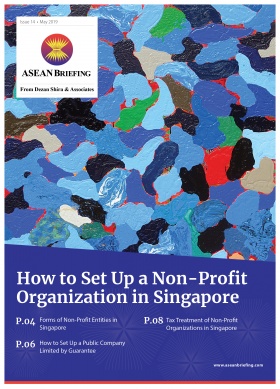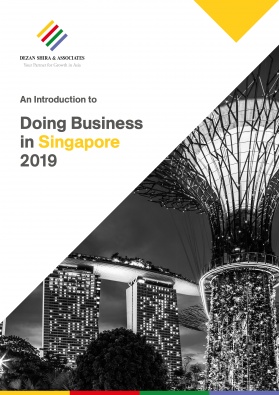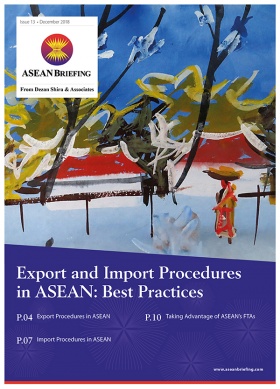Singapore’s FTA Network: What are They and How to Apply
- Singapore’s 24 free trade agreements make it an ideal destination for investors looking for business opportunities in Asia.
- The FTAs provide Singaporean-based businesses with access to preferential markets as well as free or reduced import tariffs.
- Foreign investors should seek the help of registered local advisors to understand how they can benefit from the incentives covered under the FTAs.
Singapore’s extensive free trade agreements (FTA), coupled with a transparent legal system and educated workforce, have been credited with accelerating the country’s transformation to a first-world economy.
The country’s 13 bilateral and 11 regional FTAs include some of the largest combined trade agreements in the ASEAN-China, ASEAN-India, and ASEAN-Hong Kong trade blocs — providing Singapore-based businesses with access to preferential markets, free or reduced import tariffs, as well as enhanced intellectual property regulations.
Despite regional players maintaining strong FTA networks, they are not as extensive as Singapore’s. Due to these factors, the country will continue to be the default location for businesses seeking to expand into Southeast Asia and neighboring regions.
Foreign investors should seek the help of registered advisors to understand how they can benefit from the incentives covered under Singapore’s FTAs.
What are the types of FTAs?
There are two types of FTAs: bilateral (agreements between Singapore and a single trading partner) and regional (signed between Singapore and a group of trading partners).
Bilateral FTAs
- China-Singapore FTA (CSFTA);
- India-Singapore Comprehensive Economic Cooperation Agreement (CECA);
- Japan-Singapore Economic Partnership Agreement (JSEPA);
- Republic of Korea-Singapore FTA (KSFTA);
- New Zealand-Singapore Comprehensive Economic Partnership Agreement (ANZSCEP);
- Panama-Singapore FTA (PSFTA);
- Peru-Singapore FTA (PeSFTA);
- Singapore-Australia FTA (SAFTA);
- Singapore-Costa Rica FTA (SCRFTA);
- Singapore-Jordan FTA (SJFTA);
- Sri Lanka-Singapore FTA (SLSFTA);
- Turkey-Singapore FTA (TRSFTA); and
- United States-Singapore FTA (USSFTA).
Regional FTAs
- ASEAN-Australia-New Zealand Free Trade Area (AANZFTA);
- ASEAN-China Free Trade Area (ACFTA);
- ASEAN-Hong Kong, China Free Trade Area (AHKFTA);
- ASEAN-India Free Trade Area (AIFTA);
- ASEAN-Japan Comprehensive Economic Partnership (AJCEP);
- ASEAN-Republic of Korea Free Trade Area (AKFTA);
- ASEAN Free Trade Area (AFTA);
- Comprehensive and Progressive Agreement for Trans-Pacific Partnership (CPTPP);
- EFTA-Singapore FTA (ESFTA);
- Singapore-Eurasian Economic union (EAEUSFTA);
- GCC-Singapore FTA (GSFTA); and
- Trans-Pacific Strategic Economic Partnership (TPSEP).
Since the inception of the CSFTA, China has since become Singapore’s largest trading partner, with total trade worth more than US$135 billion in 2019. In October 2019, the two countries announced an upgrade to the CSFTA, which included changes to the investment chapter of the original agreement.
Under this chapter, investors from both countries will receive a ‘high-level’ of investment protection through the application of a ‘national treatment’ and the ‘most favored nation treatment status’ (MFN) for businesses.
This means businesses from either country are not treated less favorably than their own investors or investors from a third country with respect to operations, the management or other aspects related to their investments.
How to apply for FTA tariff concessions
Foreign investors looking to operate from Singapore, establishing a subsidiary company (private limited company) is advisable in order to benefit from prevailing FTAs as well as other tax incentives.
Businesses will first need to apply for a Preferential Certificate of Origin (PCOR) which is issued by Singapore Customs. The PCOR helps to identify the origin of the goods in question.
To apply, companies will need to fill out a form on the Singapore Customs website that details:
- Details of the businesses’ manufacturing premises;
- the manufacturing cost statement;
- Application for the certificate of origin with exporter permit via TradeNet;
- Certificate collection.
Companies can apply for ‘back-to-back’ PCORs which would allow them to re-export goods. This certificate can only be issued if:
- The impending FTA contains the back-to-back PCOR provisions;
- The goods will not undergo any further processing in Singapore;
- The first exporting country, Singapore, and the final importing country are signatories to the FTA; and
- The goods fulfil the requirements covered in the FTA.
Determining HS codes and rules of origins
Companies will need to establish the Harmonized System (HS) code and the rules of origin (ROO) annex to see if the specific product or service is eligible for free or preferential import tariffs.
The HS code is an international nomenclature used for classifying products. The system comprises of six numbers that define product descriptions that appear as headings and sub-headings, grouped into 21 categories.
About Us
ASEAN Briefing is produced by Dezan Shira & Associates. The firm assists foreign investors throughout Asia and maintains offices throughout ASEAN, including in Singapore, Hanoi, Ho Chi Minh City and Jakarta. Please contact us at asia@dezshira.com or visit our website at www.dezshira.com.
- Previous Article Trade War Incentive Schemes in ASEAN
- Next Article Setting Up in Indonesia – Latest Issue of ASEAN Briefing Magazine












